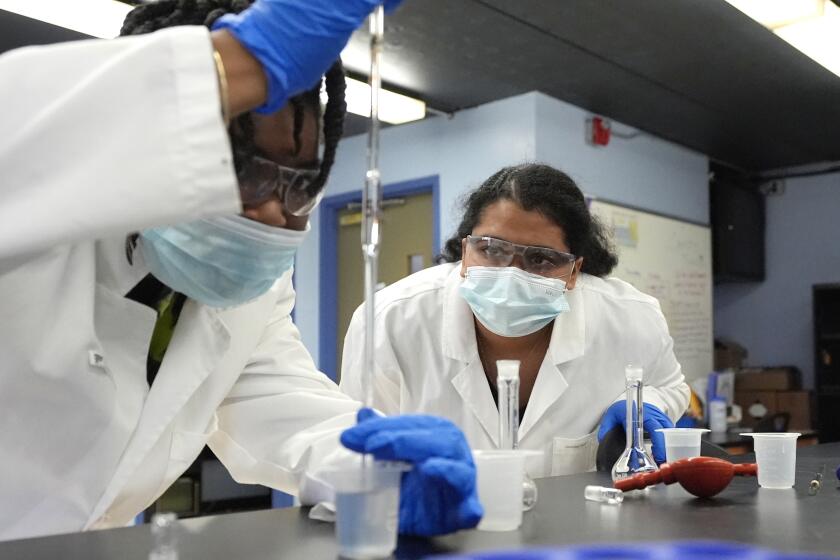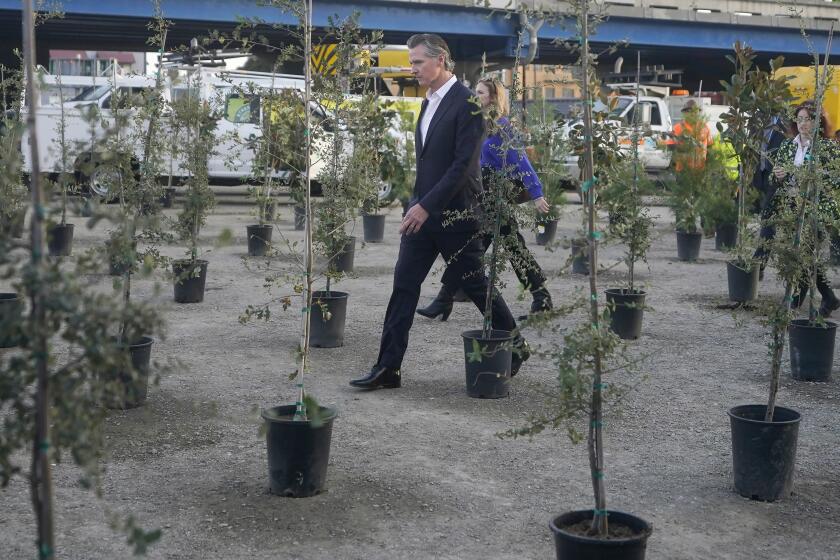Boiling Point: Western voters weighed in on climate change, up and down the ballot

We’ve known for five days that Joe Biden will be the next president, and there’s already a cottage industry of experts trying to predict what steps the Biden administration might take on climate change over the next four years.
Toward a more sustainable California
Get Boiling Point, our newsletter exploring climate change, energy and the environment, and become part of the conversation — and the solution.
You may occasionally receive promotional content from the Los Angeles Times.
There will be plenty of time to see how that plays out. At the moment, I’m more interested in the down-ballot races that are getting relatively less attention but could have significant climate and environmental impacts at the local level.
This will not be a comprehensive accounting. But here are some results from across the West that caught my attention:
California
The Golden State’s second- and third-largest oil-producing counties elected supervisors who have favored strong action to rein in the oil industry. In Los Angeles County, Holly Mitchell — who swore off fossil fuel campaign contributions and supports drilling setbacks — won a landslide victory. In Ventura County, Carmen Ramirez overcame heavy spending by an oil industry trade group, and by the state’s largest oil and gas producer — a company she called “absolutely shameless and not accountable.”
San Diego’s newly elected mayor says reducing dependence on cars is a top priority. Todd Gloria helped write the city’s climate action plan, which includes a legally binding target to cut climate pollution in half by 2035. It also looks like Democrats will have a majority on the San Diego County Board of Supervisors for the first time in more than 30 years, which could mean more aggressive climate action.
The Imperial Irrigation District, which controls the largest share of Colorado River water in the West, saw two-fifths of its board turn over. Voters overwhelmingly elected J.B. Hamby, who has made aggressive calls to protect the Imperial Valley’s water supplies from outsiders, to an open seat; I wrote about the race’s significance to the wider West earlier this year. Voters also replaced incumbent Erik Ortega with Javier Gonzalez, who like Hamby received support from a prominent rooftop solar company.
A company trying to build a seawater desalination plant in Orange County spent more than $400,000 to support water board candidates favorable to its project. Two of the candidates won their races, and three did not.
Several cities approved or rejected tax increases to fund climate programs:
- In Berkeley, voters narrowly rejected a utility tax increase that would have supported a climate action equity fund.
- In Albany, Berkeley’s neighbor to the north, voters approved a similarly climate-focused utility tax increase.
- In Long Beach, voters increased the city’s oil production tax, which could raise money to support sea-level rise adaptation.
And finally, a few city council races:
- In San Luis Obispo, voters reelected Mayor Heidi Harmon and City Council member Andy Pease, both of whom supported a proposal to limit gas hookups in new buildings. (I wrote about the intense pushback they faced from gas industry workers.)
- In Los Angeles, Nithya Raman unseated City Council member David Ryu. Both candidates were Democrats, but Raman supports the Green New Deal and was backed by the Sunrise Movement and Sen. Bernie Sanders.
- In Richmond, voters returned longtime Chevron critic Gayle McLaughlin to the City Council. The former Green Party politician ultimately wants to see the oil giant decommission its massive refinery on the city’s waterfront.
- In Benicia, where Valero Energy runs a refinery on the waterfront, voters rejected a mayoral candidate backed by a quarter-million dollars in Valero funding. Instead they elected Steve Young, who has pushed for more regulation of the refinery.
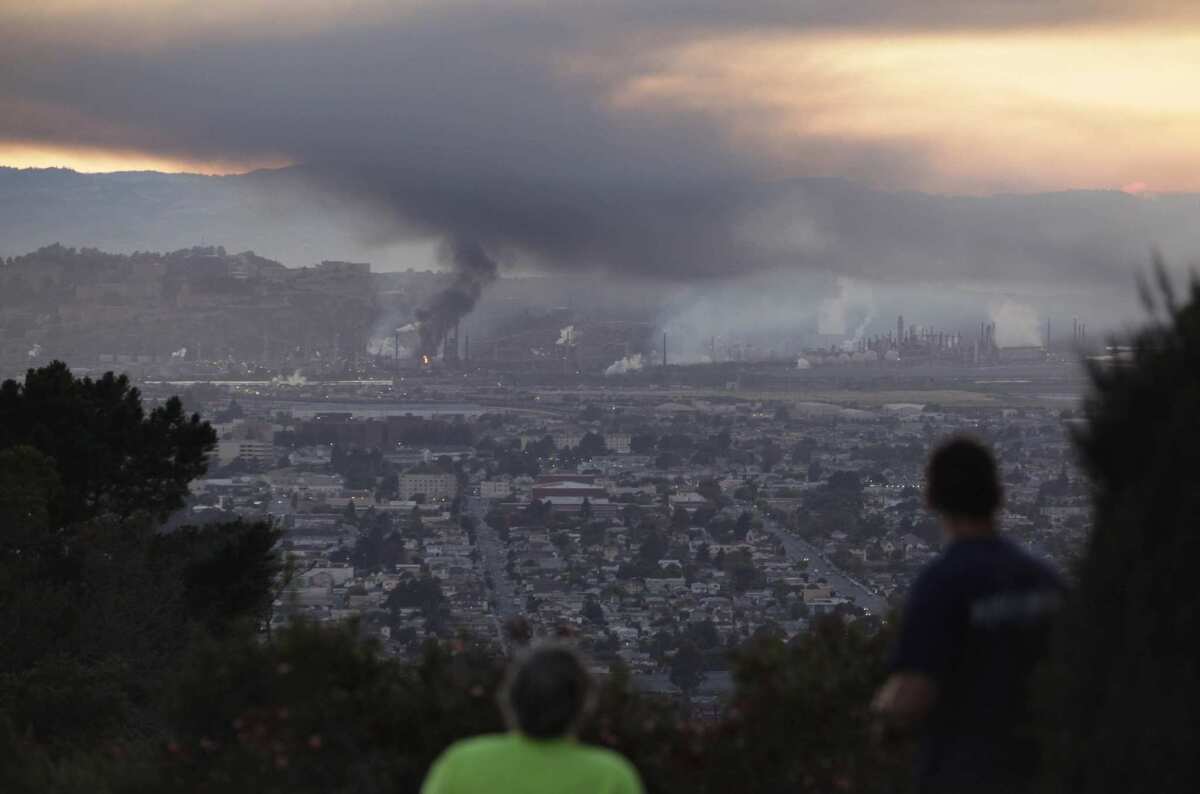
Alaska
There are still lots of votes to count in the Last Frontier, but a proposal to increase oil production taxes on the state’s North Slope is losing badly. Proponents said increased tax revenue would be good for Alaskans, protecting the dividends they receive from the state, while opponents said the higher taxes would drive oil companies away from the North Slope.
Arizona
I mentioned last week that Arizona regulators had tentatively approved a 100% clean energy requirement. But that might change. While the Grand Canyon State appears to have narrowly voted for Joe Biden over Donald Trump, voters also elected two Republicans and one Democrat to the Arizona Corporation Commission. The newly reconstituted board might have the votes to overturn the 100% clean energy requirement, as Ryan Randazzo reports for the Arizona Republic.
Arizonans also elected Mark Kelly to the U.S. Senate, a rare bright spot for activists hoping for more support for climate action in Congress. Kelly is an astronaut who has talked about his experience seeing Earth from space when discussing the need to tackle the climate crisis. His opponent, Martha McSally, described Obama-era climate programs as federal overreach.
In Phoenix, 28-year-old climate activist Yassamin Ansari is headed for a runoff in the race for an open City Council seat. She previously worked on the Global Climate Action Summit, and in the United Nations secretary-general’s office.
Colorado
Coloradans elected John Hickenlooper to the Senate, giving Democrats their only pickup outside Arizona. Progressives weren’t exactly thrilled; Hickenlooper is a former petroleum geologist whom climate activists called “Frackenlooper” during his tenure as governor of the Centennial State, due to his support for fracking. His opponent, Cory Gardner, sponsored the Great American Outdoors Act but also advocated for more drilling and opposed the Obama administration’s Clean Power Plan.
Coloradans also narrowly voted to reintroduce wolves on the state’s Western Slope. The controversial ballot measure was opposed by farmers and ranchers who worry that wolves will kill their livestock, and supported by conservationists who see wolf reintroduction as necessary after the animals were nearly driven to extinction by hunters.
In Denver, voters approved a 0.25 percentage point tax increase to support climate action. The tax is expected to raise $40 million annually for clean energy and sustainable transportation. Meanwhile, in Boulder, residents voted to approve a 20-year franchise agreement with Xcel Energy and pause efforts to form their own city-run electric utility. Xcel Energy is targeting dramatic emission reductions, but it’s not enough to satisfy some activists.
Montana
The Treasure State’s newly elected governor is Greg Gianforte, who campaigned on a promise to increase logging, coal mining and oil and gas production. Conservationists are worried Gianforte’s policies will diminish the world-class trout streams and other natural wonders that give the state its nickname.
Montanans also reelected Steve Daines to the U.S. Senate, choosing the Republican incumbent over Democratic challenger Steve Bullock in a closely watched race. Daines, like Cory Gardner in Colorado, helped shepherd the Great American Outdoors Act through Congress, although he opposed U.S. participation in the Paris climate agreement. Bullock’s support for renewable energy and climate action as Montana’s governor was a pretty big deal in a conservative state with a powerful fossil fuel industry.
Nevada
Voters added a 50% renewable energy mandate to the Silver State’s constitution. This is the second time voters approved the measure; in Nevada, the electorate must approve constitutional amendments twice before they take effect. Even with the clean energy requirement, though, environmental groups say Nevada isn’t on track to meet its long-term climate change goals.
New Mexico
Democrats maintained their majorities in both houses of the state Legislature. The Land of Enchantment is a major oil and gas producer, and the industry is worried it will continue to face stricter regulation under Gov. Michelle Lujan-Grisham. Joining the state Senate will be Carrie Hamblen, who leads the Las Cruces Green Chamber of Commerce and supports a fracking moratorium.
New Mexico voters also approved fundamental changes to the state’s Public Regulation Commission, which oversees the utility industry. Rather than a five-member elected board, the agency will now be led by three political appointees. The restructuring was supported by Lujan-Grisham and environmental groups including the Natural Resources Defense Council, which said the agency “should be led by experts, not politicians” and would now be better positioned to promote clean energy.
Utah
Beehive State voters overwhelmingly approved a constitutional amendment guaranteeing the right to hunt and fish. No one is trying to ban hunting and fishing at this time, but supporters said the measure would help ward off potential future efforts to outlaw those activities. Critics said the constitutional amendment could interfere with science-based wildlife management.
**
And now, here’s what else is happening around the West:
TOP STORIES
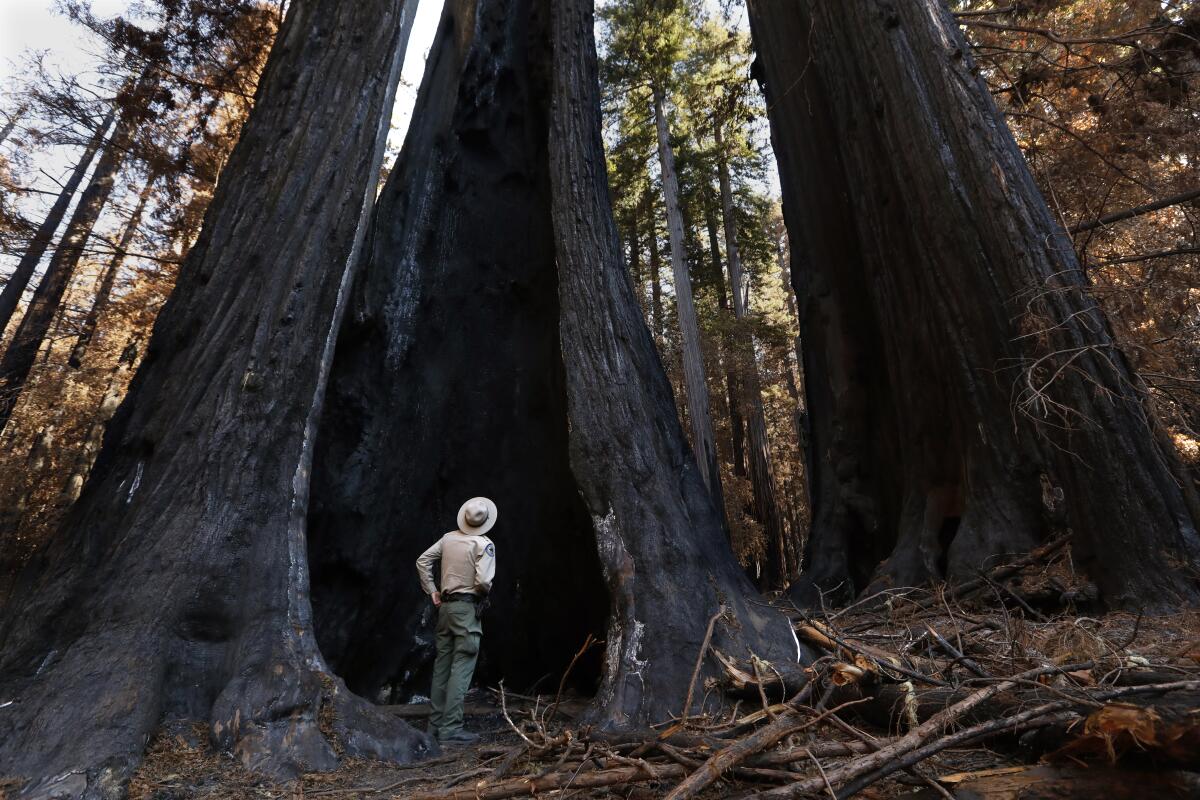
Two months after fire tore through Big Basin Redwoods State Park, it’s still not clear if the beloved redwood forest will fully recover. My colleagues Susanne Rust and Carolyn Cole took a trip up north to check on California’s first state park, where a rapidly heating planet is making life more treacherous for trees that are historically adapted to live with fire.
A consumer watchdog agency says Southern California Gas should be fined $255 million for fighting energy efficiency rules and local gas bans. Here’s my story on the massive proposed penalty, which follows a whole bunch of reporting I’ve done on how the nation’s biggest gas company is responding to climate change policy. SoCalGas says it did nothing wrong and only opposed a handful of rules that would raise costs for its customers. The Public Utilities Commission has final say over any fine.
Speaking of gas, San Francisco became the country’s second-largest city to limit gas hookups in new buildings. The policy requires new residential and commercial buildings to be all-electric starting next year, with a two-year exception for restaurants that want to have gas stoves, as J.K. Dineen reports for the San Francisco Chronicle. San Jose, which has a larger population than San Francisco, also limited gas hookups last year, although its policy isn’t quite as strict.
Enjoying this newsletter? Consider subscribing to The Times
Your support helps us deliver the news that matters most, and makes newsletters like Boiling Point possible. Become a Los Angeles Times subscriber.
CALIFORNIA BURNING
California experienced its hottest August, hottest September and hottest October on record this year. That’s according to UCLA climate scientist Daniel Swain, who talked with The Times’ Hayley Smith. Hayley also reports that Los Angeles just ended a record 200 straight days of highs over 70 degrees. That’s probably for the best, although I am not digging this chilly L.A. weather.
It doesn’t say great things about California’s wildfire vulnerability that the state’s insurance commissioner has once again barred insurers from dropping coverage for homes in fire-stricken areas. Joseph Serna reports that the one-year moratorium will protect 2.1 million homes from San Diego to Siskiyou counties, although no one is pretending this is a long-term solution.
A retired Southern California Edison employee is suing the company after losing his home in the Bobcat fire, Hayley Smith reports. Richard Passmore “devoted his entire 36-year career working diligently as a meter reader for Edison, only to have Edison burn down his home,” the lawsuit reads. Edison says its equipment may have ignited the fire, although investigators haven’t made a final determination.
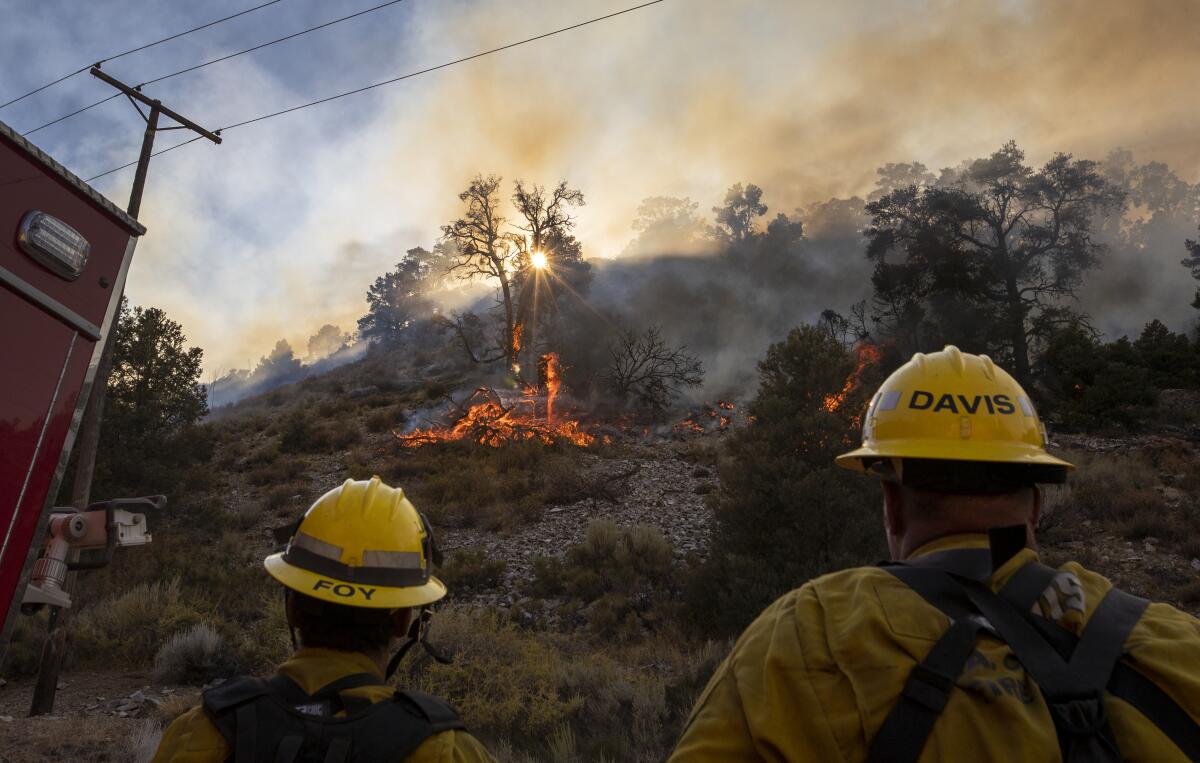
POLITICAL CLIMATE
Unless Democrats can win two Senate runoffs in Georgia, the chamber will be controlled by Republicans. That will make it difficult for Joe Biden to implement some of the most ambitious pieces of his climate agenda, but there are still steps he can take without Congress. For a rundown of his options, check out this piece by my colleague Anna M. Phillips. Biden can toughen fuel economy regulations, end new oil drilling on federal land and make climate change a key component of his foreign policy.
The chief executive of Los Angeles County’s transit agency will lead Biden’s transition team for the Department of Transportation. L.A. Metro has gone on a rail-building spree under Phil Washington, as Laura Nelson reports for The Times, and his selection to help map out the Biden administration’s plans likely reflects the president-elect’s calls for federal investment in climate-friendly transit. It’s also worth noting that L.A. Mayor Eric Garcetti is rumored to be in the running for Biden’s transportation secretary.
On Catalina Island, there’s a battle between biologists, local residents resistant to change and “the vision that chewing gum magnate William Wrigley Jr. had when he bought up much of the island in 1919.” So says Louis Sahagun, who wrote a fascinating story about efforts to add more bison to the island’s existing herds. Apparently the first 14 bison were left on the island off the Southern California coast by a movie crew in 1924, and now tourism boosters — but not biologists — want more of them.
What do you want to know?
When you think about California’s climate future, what comes to mind? What keeps you up at night, and what gives you hope or gets you excited? What do you want to understand, and what should I?
This newsletter is for you, to help you understand how we’re changing our world and what we can do about it, and I want to hear your questions, concerns and ideas. Email me or find me on Twitter.
ONE MORE THING
Like everyone else, I was saddened to hear about Alex Trebek’s death. But I was also surprised to learn that the iconic “Jeopardy!” host bought 62 acres of open land in the Santa Monica Mountains and donated it to the Mountains Recreation and Conservation Authority. It’s called Trebek Open Space, and today it serves as a wildlife corridor and free hiking space between Runyon Canyon and Nichols Canyon, as Anka Radakovich writes for Los Angeles Magazine.
I’ll take “that’s pretty darn awesome” for $600, Alex.
We’ll be back in your inbox next week. If you enjoyed this newsletter, please consider forwarding it to your friends and colleagues.



